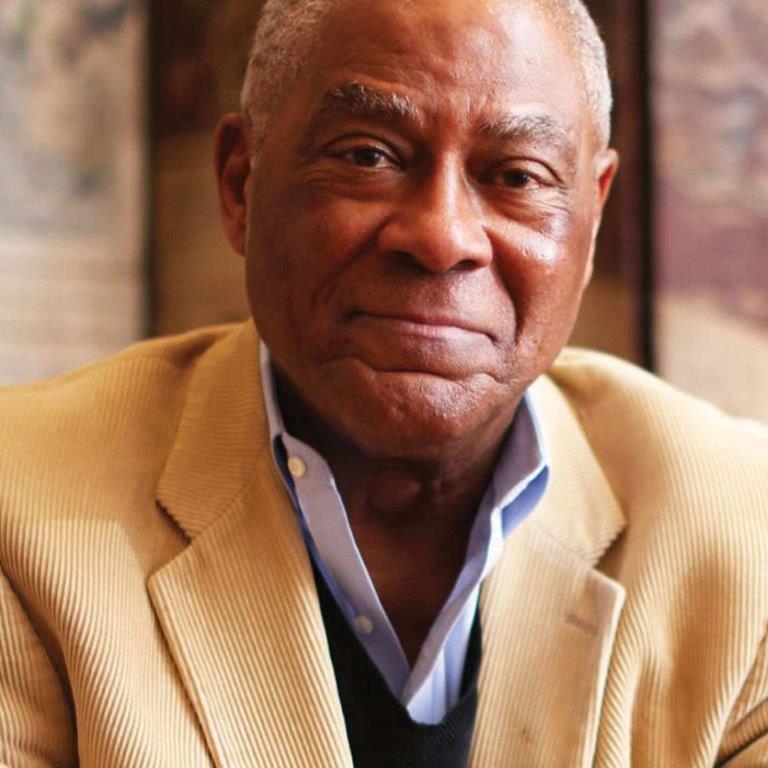Five Minute History Lesson
- Thomas Jones

- May 11, 2021
- 3 min read

In 1994 at Cornell University I created and endowed an annual James A. Perkins Prize for Interracial and Intercultural Peace and Harmony. My purpose was to honor the former Cornell president who championed efforts to dramatically increase black student enrollment beginning in 1965, my freshman year, and subsequently became the scapegoat for faculty, trustee and alumni wrath in the aftermath of the 1969 "Guns at Cornell" campus turmoil. I delivered these remarks at the twenty-sixth annual Perkins Prize award ceremony on May 6, 2021.
My remarks this evening are a five minute history lesson on Race in America, as I see it. Please listen carefully because the next chapter in this story will be written by you.
Chapter One is the first 250 years in America, from 1619 when African slaves first landed in Virginia to the end of the Civil War in1865. I call this the Era of Chattel Slavery. Chattel slavery meant that black people were afforded the same legal status as agricultural livestock -- subject to being bought, sold, mortgaged, whipped, raped, or any other degradation their owners decided to inflict. In the South it was illegal to teach slaves to read and write. Slaves were not citizens; had no legal standing or rights in a court of law; no property rights; no human rights; and no family rights. It was routine for children to be sold away from their parents. This harsh era was as bleak as life could possibly be for human beings.
Chapter Two is the 150 year period from 1865 to the present. I call this the Era of Civil Rights. Blacks were emancipated from slavery and received American citizenship and voting rights by constitutional amendment. They received no financial reparations for slavery and were unwelcome in most of America. Most began their freedom journey with no property other than the rags in which they were clothed. Despite ongoing entrenched racial discrimination and violent antiblack terrorism, personified by over 4,000 lynchings between 1870 and 1950, African Americans slowly achieved equality under law. It is popular today on many college campuses to say "nothing has changed" with regards to race, but that is not true. Millions of African Americans have been educated, including at elite universities like Cornell. Millions of African Americans have lifted their families out of poverty, and some are counted among the wealthiest Americans. African Americans have access to employment opportunities in all sectors of the economy, and have achieved the pinnacle of every profession and occupation in America, including the presidency. De jure racial discrimination codified in law has been eliminated. This era is perhaps best described in the words of Maya Angelou's poem And Still I Rise: "You may shoot me with your words; you may cut me with your eyes; you may kill me with your hatefulness; but still, like air, I'll rise."
Chapter Three is just now beginning. I think the central question will be whether America can succeed as a multiracial and multicultural democracy. Global opponents such as China depict America as a nation in decline, citing racial and cultural conflict as a key driver of their thesis. Even America's friends around the world watched in disbelief as the 2020 presidential election results were disputed by Republican and Democratic political parties which seem to have lost the ability to agree even on basic facts regarding what is true or not true. The left wing liberal refrain that "nothing has changed" is as false as the right wing conservative refrain that the 2020 presidential election was "stolen by voter fraud". Most Americans were shocked to watch the January 6 violent assault on the Capitol building, which had racial undertones in the display of Confederate flags and Nazi symbols. It is in difficult historical periods like the present when we most need the "best and brightest" among us to step-up
and help us find our way. Your participation in the activities which led to your nomination for the Perkins Prize testifies that you care deeply about racial reconciliation and social harmony. I hope you will persevere in this, and that your success helps make Cornell University a bright beacon of positive and constructive race relations to which all of America looks for guidance and inspiration. You will write the next chapter of Race in America.
Thank you



One ugly difference between slaves and other chattel property in the chattel slavery era: plantation owners did not generally rape their horses, cattle, or swine. But your point is well-taken.
I have at least one enslaver in my family history. My fourth-great-grandfather manumitted five slaves in his 1791 Delaware will. I even know their names: Charles, Betty, Moses, Rose, and Nice. I think they were father, mother, and three children, from the staged nature of their manumission over more than a decade. I do not know what became of them. I hope he did not rape any. His great-grandson, my great-grandfather, fought to free the slaves by enlisting at age 17 in the Army of the Potomac in 1864,…